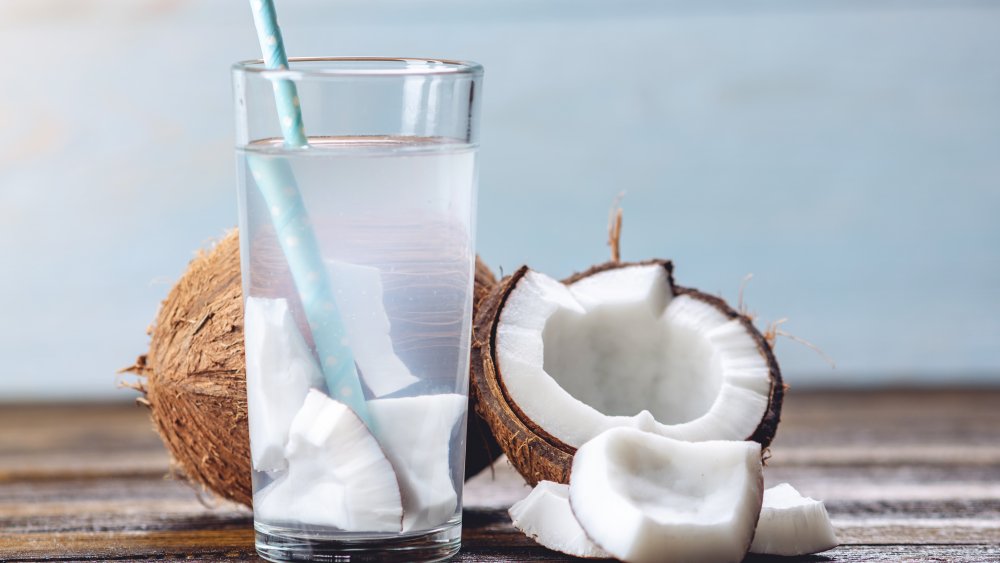What Really Makes Coconut Water Different From Regular Water
Staying adequately hydrated is essential to life and to ensuring our bodies function properly. Water plays a critical role in regulating body temperature, lubricating joints and the spinal cord, eliminating toxins through urine, perspiration, and bowel movements, and many other important functions (via Centers for Disease Control and Prevention). Our bodies are composed of approximately 60 percent water, and a lack of adequate hydration can lead to sometimes serious and fatal consequences such as dehydration and organ failure.
So what's the best way to stay hydrated? Is drinking regular water enough, or are options like coconut water and sports drinks just as beneficial? Before we dive into the truth behind coconut water, it's important to understand the benefits of drinking regular water.
While there is no standard on how much water is actually necessary to drink on a daily basis, you've probably heard it's somewhere around eight glasses. There has long been debate on whether your favorite caffeinated beverages like coffee or tea are more hydrating or dehydrating. While caffeine does have a known diuretic effect on the body and can increase urination, if it's consumed in moderation, it is unlikely to be dehydrating. For example, to have a significant diuretic effect you'd have to consume over six cups of caffeinated tea (via Healthline).
Regular water contains zero calories, fat, carbohydrates, sugars, or protein. Depending on the source and whether or not it has been enhanced, some waters may contain small amounts of vitamins or electrolytes (via Verywell Fit). Drinking water, however, is not the only way to contribute to your fluid intake — foods such as celery, tomatoes, melons, and broth soups all have a high water content.
The truth about coconut water
Coconut water comes from the center of young, green coconuts approximately 6 to 7 months of age and has a distinctly sweet, nutty taste (via Healthline).
Often referred to as "Nature's sports drink," coconut water has been touted as an effective post-workout drink. It contains easily digestible carbohydrates, fiber, protein, and several minerals and electrolytes such as magnesium, potassium, sodium, and calcium. Many of these minerals play a crucial role in the functioning of skeletal and cardiac muscles. Compared to many sports drinks which are packed with added sugars and excess calories, coconut water seems to be the healthier option.
Coconut water is also known to have antioxidant properties. Free radicals are unstable molecules produced in the body as a response to stress or injury. Too many free radicals promote oxidative stress which can cause cellular damage and increase the risk of diseases. Antioxidants help to neutralize oxidative stress.
While there are benefits of drinking coconut water, drinking too much can have negative effects on your health as well. For example, if potassium levels in the blood become too high, this can lead to irregular heartbeat and kidney problems.
The bottom line is that adequate hydration is essential to sustaining life. So whether you're opting for good ol' fashioned water or shaking things up with coconut water, be sure to stay hydrated.


